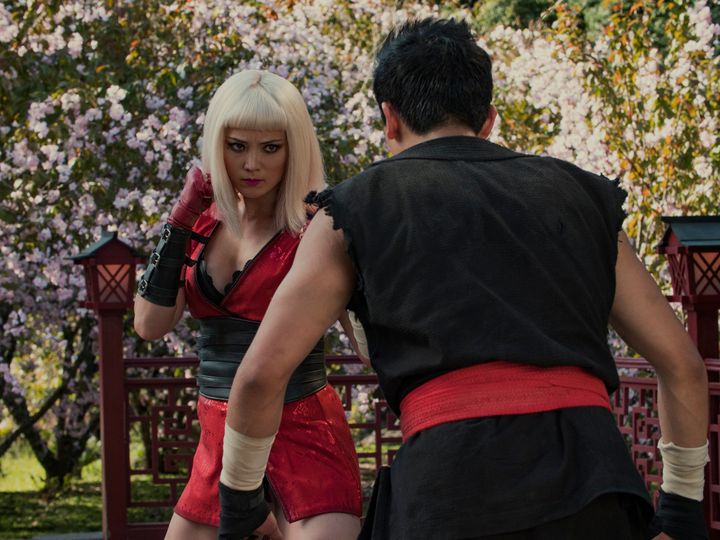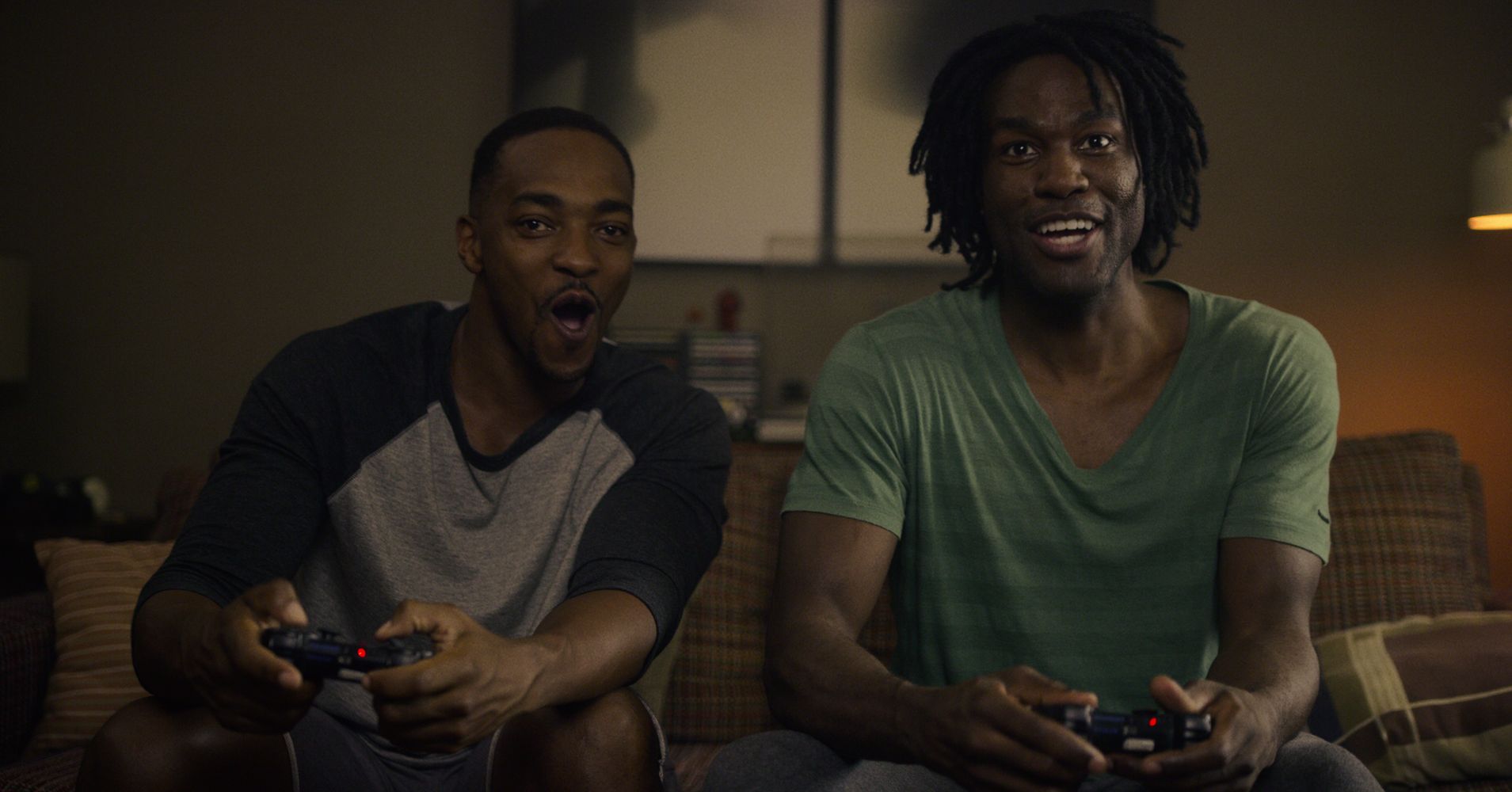[ad_1]
The trailer for “Striking Vipers,” one of three new episodes in Netflix’s creepy anthology series “Black Mirror,” is just vague enough. We see a suburban, upper-middle class black couple with a child in scenes of domesticity, but there’s a tinge of unease. We see the couple driving home in silence, the tension palpable between them.
We see the husband, Danny (played by Anthony Mackie), turn down sex with his wife, Theo (Nichole Beharie), because he’s “tired,” though it’s obvious he’s lying. We see his friend, Karl (Yahya Abdul-Mateen II), playfully bragging about the sexy girl he’s dating, sharing pictures of her on his phone, as Danny looks on longingly. We see Theo staring forlornly into a mirror, appraising every perceived flaw. And we know, as Theo says by the trailer’s end, “There’s something going on.”
The suggestion and conclusion made by the end of the trailer is that Danny is using virtual reality technology as an escape from his stale marriage. The reality of what’s actually going on is far more complex. Because in watching the actual episode (major spoilers are coming up, by the way), you learn that yes, Danny is having an affair ― with his best friend, Karl. The friends, who’ve known each other for 10 years but by the time the story starts haven’t really been keeping in touch, start playing a VR game called “Striking Vipers” that is so immersive they actually become their characters, viscerally feeling everything their avatars are feeling.
But instead of fighting in the “Mortal Kombat”-style game, the pair end up in a virtual sexual relationship, with Danny as an Asian male fighter named Lance (Ludi Lin) and Karl as sexy female fighter Roxette (Pom Klementieff). It is, as the enthusiastic Karl mentions at one point, the “best sex of [our lives],” but throughout the affair Danny struggles with the idea that he’s essentially having an affair with his best friend, and especially with the idea that his friend, though female in the game, is a man.
There are echoes of the classic “Black Mirror” episode “The Entire History of You” here. Like that episode, also written by showrunner Charlie Brooker, technology plays a role in deepening the strain and the jealousy in an already collapsing relationship. There are also echoes of “San Junipero,” which told the story of a lesbian couple who fall in love in a virtual world. Unlike those episodes, there are several subtle layers piled on top of “Striking Vipers.”
The episode is about a lot of things, including the role technology plays in our lives as a form of escape, and how that escape can inadvertently become our lives if we’re not too careful. It’s about the nature of relationships, the distinctions between love and commitment. But the most interesting theme and thread here is the inherent fluidity of sexuality and the self-destruction of denial, told here, significantly, through the story of two black men.
It’s significant that “Striking Vipers” has an entirely black leading cast, a first for the “Black Mirror” series. And it’s significant to watch two black men, specifically, grapple with their sexuality and identity, and play out their sexual fantasies in a way that few are ever given space to do in the “real” world.
There are few queer stories about black men in pop culture, and a trope that we do get often is that of the “downlow brother” who marries black women while continuing to pursue gay sexual relationships outside the marriage. The trope doesn’t leave much room for compassion or nuance, vilifying these men rather than scrutinizing the real factors that force them to stay in the closet or question their sexual identity in painful silence.

“Striking Vipers” plays with that trope in interesting new ways. It isn’t a strictly gay story, but it is one that questions the confines of sexual identity and imagines a world ― literally ― where black men (and indeed all men) are not inhibited or confined by gender. Throughout the episode, Karl insists that his and Danny’s midnight meetups in the virtual world don’t make them “gay,” that what they’re doing is simply like porn, but in this he misses the point ―this isn’t really about rigid ideas about gay vs. straight, but a more fluid approach to sex and their own masculinity.
After trying to cut off the virtual relationship multiple times, Danny suggests that he and Karl meet in real life to kiss for real, and determine whether they are actually gay and actually in love. Neither man “feels” anything, and this realization almost seems to make things worse ― the two end up fighting, for real. The fight is emblematic of their own inner struggles ― if they’re not gay, then what are they?
There’s an earlier scene midway through the episode where Nicole Beharie, as Theo, delivers an amazing monologue about the nature of commitment in a relationship and the sacrifices one has to make to make it work, adding dimension to the episode by invoking the emotional toll that Danny’s deception and denial put her through.
“I just want to know. I’ll deal with it how I deal with it. I just have to know,” she says.
Danny reaches across the table, grabs her hand, and lies to her and to himself: “Nothing is going on.”
“Striking Vipers” ends with a compromise. Danny and Theo open up their relationship ― every month, Theo takes off her wedding ring and goes out on the town, while Danny stays home and has his midnight meetup with Karl as Roxette. It’s unclear whether this compromise will last, whether it will work, but that’s not relevant. The victory here, if there is a victory, is that Danny, Theo, and Karl are finally being honest with themselves.
REAL LIFE. REAL NEWS. REAL VOICES.
Help us tell more of the stories that matter from voices that too often remain unheard.
[ad_2]
Source link

